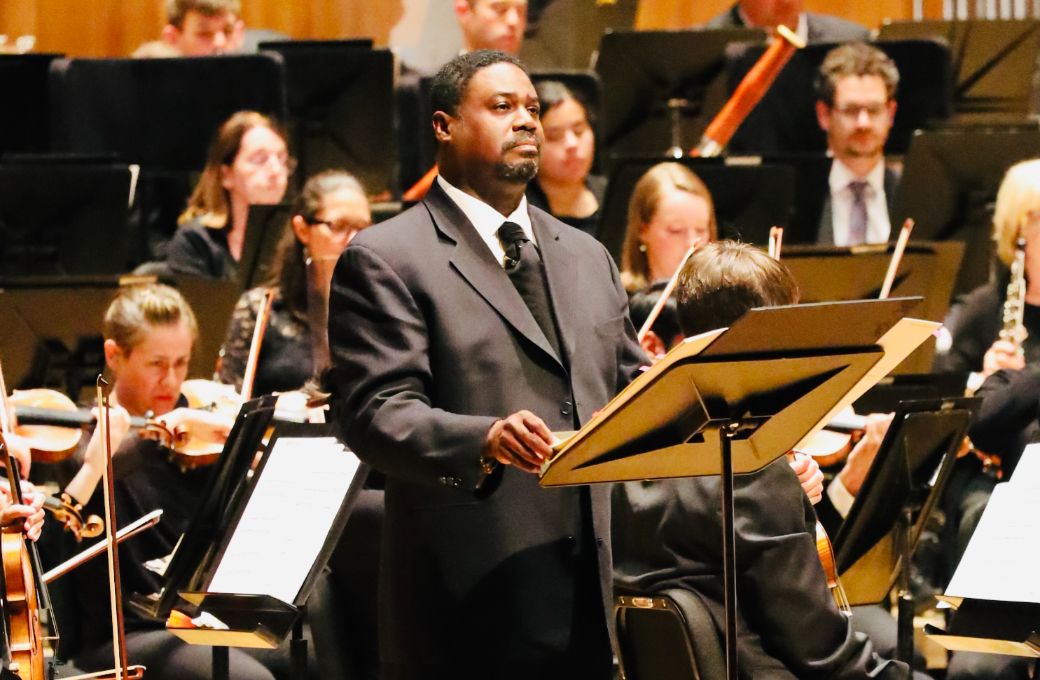James Conlon devised a program that centered living African American composers for the final subscription concert of the Baltimore Symphony Orchestra’s 2022-23 season. The decision made sense for an orchestra that serves a city with a majority Black population, although the audience at the sparsely attended Sunday matinee on 18th June tended to be less representative of Baltimore’s demographics. The triptych of pieces on the first half of the bill reflected the lives of Martin Luther King Jr and James Baldwin, as well as the 1991 police brutality case involving Rodney King, and when taken together, they formed an appropriate musical history lesson on the eve of Juneteenth. As Conlon said in pre-concert remarks, the selections reflected “the vast history that our country shares, for better and for worse”.
The BSO premiered Adolphus Hailstork’s Epitaph for a Man Who Dreamed in 1980, twelve years after King’s assassination in Memphis. The elegiac composition evokes the style of spirituals without quoting directly, and Hailstork keeps the music at an even keel, eschewing the wailing nature of the threnody in favor of the contemplation and restraint. The massed strings seem not to reflect the tragedy of King’s untimely murder but to offer an image of the idealized world he envisioned during his life. A touch of grief does come through in the darkly colored woodwind and mournful brass that underlay the central harmony. The musicians approached this tribute honorably, though a touch more shimmer in the string tone would have been welcome.
Alvin Singleton’s 56 Blows (Quis Custodiet Custodes?) stood in stylistic opposition to the Hailstork work, an overtly political and intentionally unsettling tone poem. Unnerving staccato blasts from the tuba, trombone and horns personified the smashing of batons into human flesh, which wailing oboe and bassoon approximated police sirens. The purposeful grotesquerie of the orchestrations recalled Shostakovich, whose Tenth Symphony would be heard later in the concert, in its confrontational nature. Conlon kept the piece hurtling forward at full gallop until it reached a surprisingly hopeful crescendo, one that reflected Singleton’s hope that Rodney King’s legacy would not be tied solely to an act of violence.

To Awaken the Sleeper, a relatively new work by Bahamian-American composer Joel Thompson, melds excerpts from James Baldwin’s writing to large masses of music, tapping into a variety of American styles. The effect sometimes caused one element of the composition to overpower the other. Roderick Dixon, a well-regarded tenor in his own right, provided the narration, but the use of amplification occasionally drowned out details in Thompson’s orchestration, even during the myriad tutti passages. A gifted speaker with a mellifluous voice, Dixon’s delivery often lacked the biting irony of Baldwin’s prose style. An overuse of percussion and woodwind solos that seemed more flashy than insightful distracted from the work’s theme, and sweeping string passages sounded surprisingly conservative. Revising the piece as a song cycle, rather than an omnibus theatrical curiosity, might be the way to go.
Conlon bookended the afternoon with another tribute, albeit a less flattering one: Shostakovich composed his Symphony no. 10 in E minor in the wake of Stalin’s death. You can hear his mental liberation from the dictator’s yoke throughout the work – during the satirical funeral music in the first movement; in the unflattering sketch of Stalin’s portrait in the maniacal Scherzo; in the way he quotes his name through musical pitches in the Allegretto and Andante, as if to say “I’m still here”. Other orchestras might approach this long work with more polish, but the rough, unblended edge to the BSO’s sound and Conlon’s relentless forward momentum made for a thrilling journey through Shostakovich’s kaleidoscopic reckoning with a man who tortured his soul. The musicians played like the rent was due, and as they finished in triumph, there was no doubt they had earned their summer vacation.


